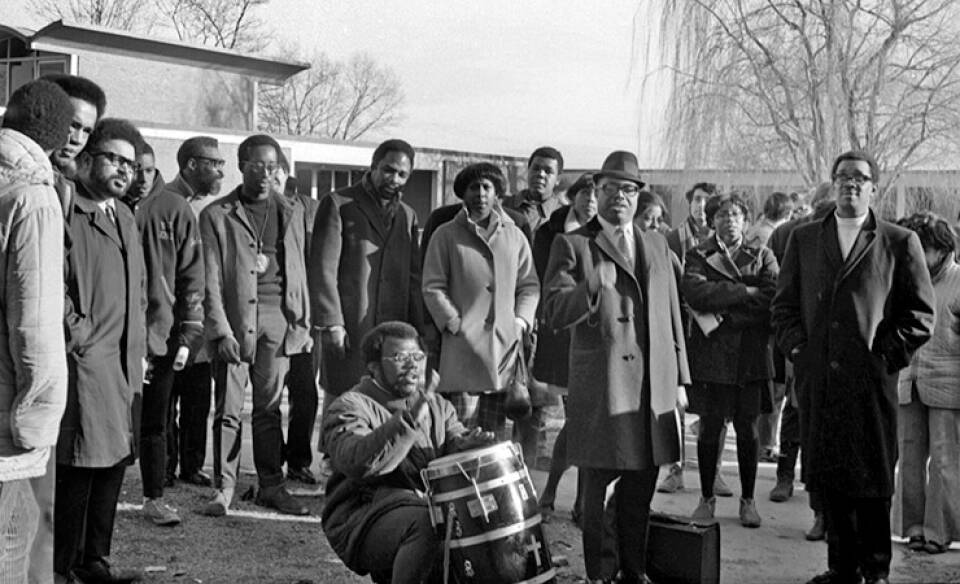In 1968, after Joyce Martin from Roxbury enrolled at Brandeis University, she joined the growing campaign to create an African-American Studies program. Martin and other black students told Brandeis administrators they, too, had a culture that offered academic value.
"Not just to us, but to the university," Martin said.
Administrators had pledged to create a program within five years, but after the assassination of Martin Luther King Jr. that spring, students had grown impatient.
In Jan. 1969, Martin and dozens of other students occupied Ford Hall, the campus' main academic building.
"We chained the doors and we said we're not coming out until they meet our demands," Martin recalled.
After 11 days, administrators agreed to meet most of their demands. Three months later, on Apr. 24, faculty approved the creation of an African and Afro-American Studies Department.
"Not a program, not a few courses, but a department,” Martin said. “It was very, very rewarding."
In the 1960s, black students on college campuses across the country were demanding courses about the African-American experience. The department at Brandeis was one of the first.
Nathan Hare, a professor at San Francisco State University, in 1968 founded the first Black Studies program, which, a year later, became a full-fledged department. Over the next five years, black studies was introduced at more than 600 colleges. The protests at San Francisco State, Brandeis and other colleges led to the rise of ethnic studies departments, which have become fixtures on campuses.
“San Francisco State is usually recognized as the epicenter of the movement to create black studies within the university, and Brandeis was part of that movement," said Chad Williams, current chair of the African and African-American studies department at Brandeis.
Williams said the goal was to embed the black American experience into the curriculum and to make colleges welcoming to black students.
Looking back, he said the program has not yet achieved that goal.
"I think it's continuing to fight for that original vision of what the department should be,” he said. “I think what's most important is that African and African American studies be taken seriously. You cannot have a broad, diverse liberal arts education without a grounding in the black experience."

This semester, Williams is teaching a course called "Black Brandeis, Black History." He said white students at Brandeis have long taken courses like this one, which he sees as even more essential today because of the rise of white nationalism.
Scott Halper, a junior from Long Island, agrees.
"Being a white dude, I definitely have a lot of privilege,” Halper said. “We talk a lot about these issues, but I think it's important to actually hear the perspectives of people that are experiencing life on this campus as black students."
Victoria Richardson, a junior from the Bronx, said black students like her are still struggling to fit in.
"We have to remember that Brandeis does not exist in a bubble or in a vessel,” Richardson said. “As long as the world is racist, Brandeis is going to be racist too."
Williams admitted there is always more Brandeis could do.
"I don't think students will ever be satisfied,” he said. “I don't think they should be satisfied. I think it's the responsibility of students — and black students in particular, rooted in the long tradition of student protests and activism — to continue to push the institution to be better."
After graduating from Brandeis, Martin became a teacher. She said the black studies courses she took during her college career informed her instruction in the Boston Public Schools.
"I've had 35 years, approximately 20 students per year — 90 percent African American — and I was able to transform and help them understand the same things that were important about our culture that I learned about," said Martin, who now teaches in Newton.
Fifty years after the occupation of Ford Hall, Martin is organizing again — this time to raise funds for the first endowed faculty position in the African and African-American Studies Department at Brandeis.





